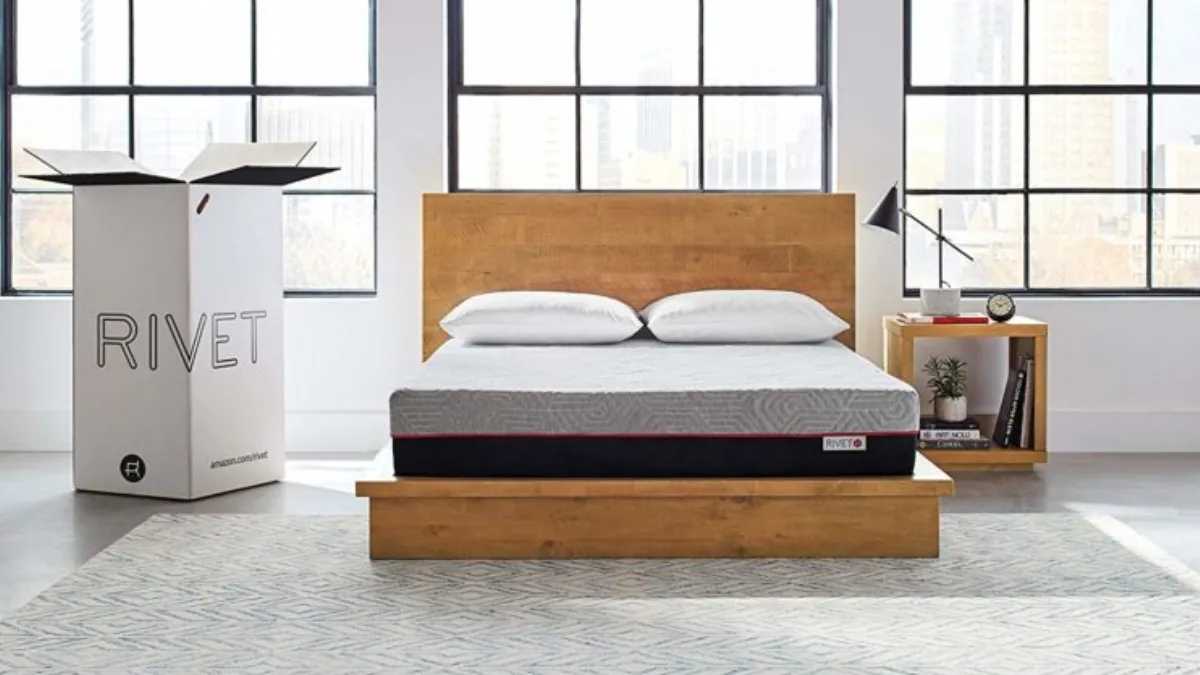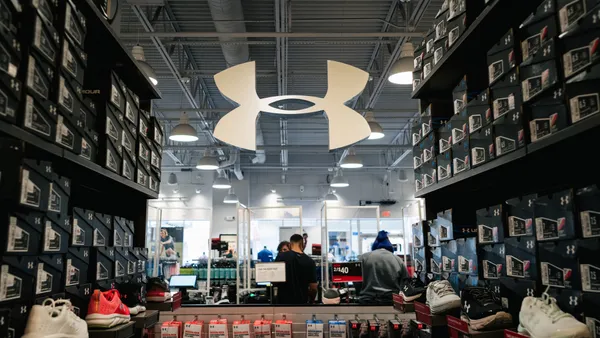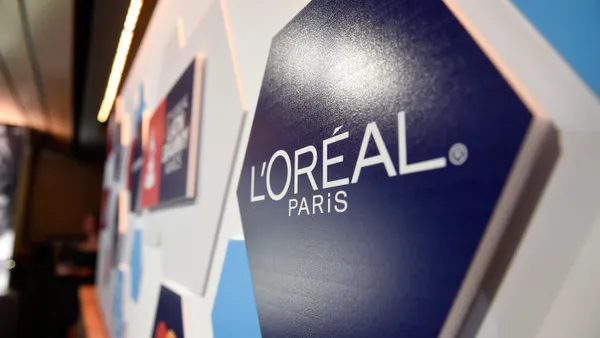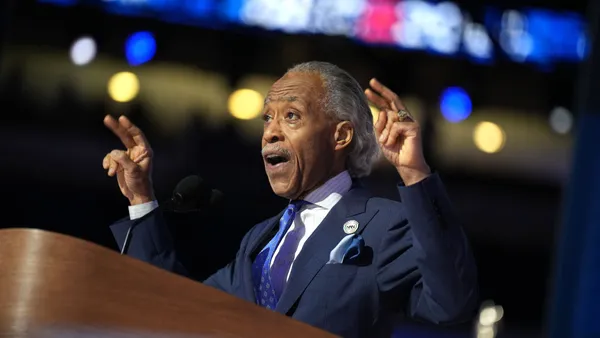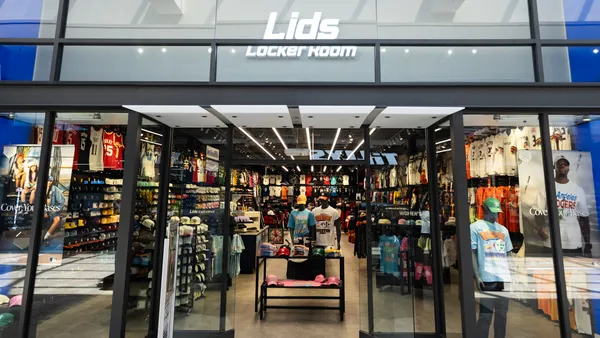Private labels have long been a way for retailers to build loyalty and take a bigger slice of margins. But, as with so much else, when Amazon launches or expands a private label, the event is treated with a little more attention.
Between the beginning of 2017 and this April, Amazon added 66 of its own labels, which was six times the labels it launched in the two-year period before that, according to Gartner L2. And it's not as though every label of Amazon's is a success. As one example, after an "incredibly successful" year in 2017, the company's Happy Belly snack brand fizzled, dropping from No. 5 among top-selling brands on Amazon to outside the top 10 as of July, according to One Click Retail, which recently rebranded as Edge by Ascential.
Still, Amazon has resources, market share and data — unimaginable amounts of data, including on competitors' product sales.
"I think that Amazon with the data that they have, have done a great job of understanding consumer sentiment and also identifying white space opportunities between, say, platform-specific indies and traditional brands," Oweise Khazi, an associate director at Gartner L2, told Retail Dive in an interview. "These are brands that are economically priced and of sufficiently great quality."
Pete Andrews, director of insights for Edge by Ascential (formerly One Click Retail), told Retail Dive in an interview that Amazon's ability to prioritize its brands in customer search plays heavily into the e-tailer's private label success. "We always say, 'Search is king,'" Andrews said, adding that "most traffic comes in through search-related activities." (This year, Amazon for the first time surpassed Google in product searches and has the ability to display its own products prominently.)
Amazon can also push its own brands with deals and promotional events as well as through marketing on its homepage, on social media and through emails to customers, Andrews also noted.
As the company launches new brands — with more on the way — as well as tinkers with its existing brands, other players are forced to adapt (some by providing Amazon with exclusive deals and labels). Amazon has grown bolder, too, moving beyond niche products to categories with strong, established players. At the same time, the company has a long way to go, as AmazonBasics still accounts for a massive share of its private label customer conversions, according to Jumpshot.
With all that in mind, we looked at some key Amazon labels for what they say about the e-commerce giant's strategy, ability and category ambitions.
-
Presto
Amazon's two-year-old Presto household essentials brand underwent a major expansion last year, adding hand soap, all-purpose cleaner, paper towels and toilet paper to its initial lineup of laundry and dish detergents. As of the second quarter this year, Presto's new paper products quickly morphed into the main driver of sales and growth, earning an estimated $350,000 in average weekly sales and ranking sixth in paper towels and toilet paper, according to a summer report from then-One Click Retail, now Edge. Now Presto is competing with some of the largest CPG makers in the business.
"With Presto, I feel like they're launching into more established categories. Think of paper towels: There are a number of players there with brand presence," Andrews said. "They [Amazon] are not leading the way but they are in those areas." A search on Amazon for paper towels turns up Bounty and Brawny in the best-sellers slots, below which there's Presto, there to help Amazon take share. Above it all is Bounty, in Amazon's sponsored slot. "You're either going to lose sales to them or you're going to have to spend money on marketing," Andrews said.
-
Solimo
When it was just a few days old, Amazon's Solimo brand had more than 90 net reviews on some of its products as well as the important "Amazon's Choice" badge in searches for its "coffee pods," according to Yahoo Finance. In addition to coffee, Solimo also includes other household basics, everything from teeth whitening strips to dog food to trash bags. In July, Edge found that Amazon's Solimo coffee pods released under its new Solimo brand have been a hit, quickly breaking into the top 25 sales for the category and generating $60,000 in revenue per week. Andrew said the brand is taking "significant share" and went from relative obscurity to 3% of the coffee market after this year's Prime Day. The summer sales event promoted Solimo products with its own-brand deals, which included up to 30% discounts on Solimo items along with Presto and Mama Bear, according to Coresight.
-
AmazonBasics
Since Amazon launched the line in 2009, AmazonBasics has moved beyond staple electronics such as cables and batteries to bedding, pet products, travel gear and, recently, mattresses. By the end of last year, the label counted more than 1,500 products. In October, Amazon added a line of mattresses to the label.
As of this summer, AmazonBasics accounted for 88% of the e-tailer's private label conversions, with half of those purchases in electronics, according to a study from analytics firm Jumpshot. That study came not quite a year after Edge found that 85% of Amazon's private label sales come from AmazonBasics. At the time, the figure was an indication that putting "Amazon" on a product had little marketing downside.
The label had also already begun taking sales from other private labels. Amazon's Pinzon bed and bath sales dropped 50% by September 2017 as AmazonBasics grew by about 50%, to nearly $10 million in sales. Andrews said the e-tailer has targeted product areas for everyday items on its site that lacked reputable products and a major brand presence. "They really have been able to find these areas that are underrepresented on Amazon and exploit it," he said. "Essentially finding those niches where third parties are really succeeding" and filling it with AmazonBasics products.
-
Amazon Elements
By last fall, Amazon's Elements brand, which makes nutritional supplements and baby wipes, had grown 90% year over year, according to Edge. By this October, Edge found that while Amazon's total sales were still "well below" the top established brands, its private label sales grew rapidly from the second to third quarter. Specifically, Amazon's private label sales in herbal supplements grew by 45% and vitamin label sales grew by about 40%. They also collected consistently high customer ratings, Edge said. The firm pointed to the role of promotions in expanding its private label supplement sales, noting that Amazon offered 15% off coupons for its OWN PWR protein powders, launched in late August, which led sales to quintuple during September.
"The scale of what they're doing is impressive," L2's Khazi said, noting the speed with which Amazon is also pushing out new brands and high demand on its website.
-
Rivet
Following the introduction last month of a private label foam mattress assortment, Amazon offered a more premium mattress line with its Rivet furniture brand, as noted by TJI Research in late October. The Rivet mattress prices are about double the AmazonBasics mattresses and come with a return policy mirroring Purple, Leesa and Casper.
Casper's Chief Marketing Officer brushed off concerns about Amazon's initial entry into the market, telling Retail Dive it was "not something that keeps us up at night" and noting that they were playing in the "very, very low end of the market." Prices, at $130 for an AmazonBasics twin, were met only by Wayfair and Walmart, according to retail consultancy firm Magid. But the Rivet launch showed that Amazon had eyes for other pieces of the market. And its chances may be good. Magid found that about 62% of customers are open to buying private label furniture, and of that group, more are open to private brands like Target's Threshold (94% openness) and Amazon's Rivet brands (87%) when compared to national brand Serta (79%).
-
Wag
In May, Amazon (in a move previously anticipated by Edge), announced its first private-label pet brand Wag, exclusive to Amazon Prime members. "[The] way Amazon entered Pet Food was predicted and makes complete sense," Edge Founder Spencer Millerberg told Retail Dive in an email at the time of the brand's launch. "Pet products on Amazon grew over 40% last year and now make up over $2B in sales annually. Amazon has also selected the highest moving categories within pet. Pet food is a logical place to start, and we predict next Amazon will move to other fast moving categories such as pet treats, pet crates/habitats and pet health care products."
Pet owners were also early e-commerce adopters, attracted mostly by the opportunity to have heavy bags of pet food delivered to their door, according to another report from Edge. "30lb bags of dry dog food remain the biggest hit among Amazon's pet products, but dry cat food is finally beginning to catch up," Edge Director of North America Sales Mike Corry wrote in a blog post last July.
Amazon's competition in the space includes PetSmart's Chewy, an e-commerce acquisition for the pet retailer that broke records. While Amazon can afford failures, PetSmart, with a debt burden of around $8 billion from the Chewy acquisition and its own leveraged buyout, has little room for error. Meanwhile, Amazon with its size, stock price and balance sheet has plenty of latitude to play around in the space.



